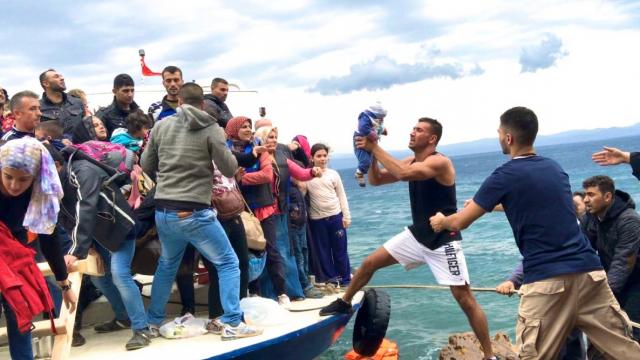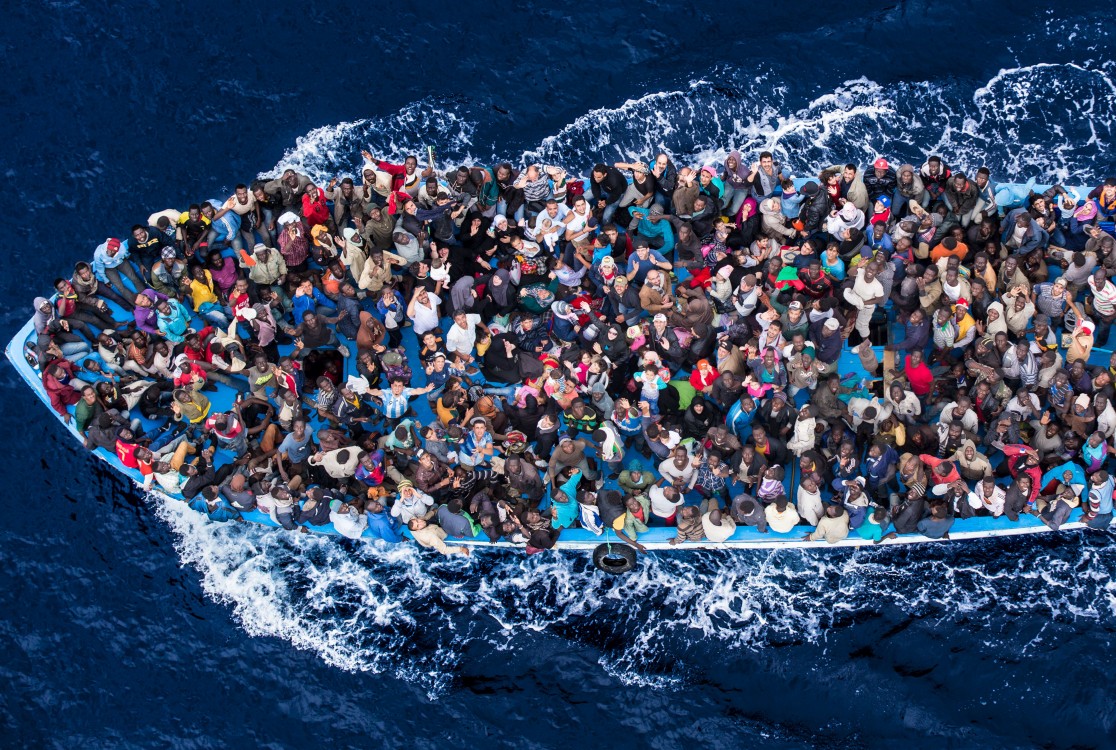
Europe's refugee crisis, and its implications, have been covered extensively by foreign media. But the attention has focused almost exclusively on the sensationalist repercussions of a humanitarian disaster, coupled with governments' reluctance to receive, house and shelter the influx of refugees from the Syrian civil war.
Much like the current economic crisis, there is more to the situation than meets the eye. The Western world has dealt with this issue before: in the advent of the Second World War. By all accounts, the refugee situation should have been contained before it reached a crisis point, with most of the Old Continent pooling its resources to achieve this attainable goal.
But before delving deeper into the reasons for Europe's failure in dealing with the crisis, we must examine its root causes.
Crossing the Sea
According to a report by Amnesty International, all six countries in the Gulf Cooperation Council have given access to Syrian nationals only sparingly, favoring wealthier immigrants despite their considerably higher available resources. When criticized over these policies, countries like the United Arab Emirates responded that foreign nationals already outnumber their own citizens five to one.
The brunt of the initial wave of migrants fleeing from war-torn Syria initially fell on nearby Muslim countries, specifically Lebanon, Jordan, Egypt and Turkey. These nations admitted more than 3 million refugees in total – Turkey alone admitted 2 million – despite their considerable financial limitations. However, following the wave of nationalism and the rise of military-backed regimes in the region, governments have begun to drive away refugees by cutting off their chances at employment, enforcing police detainment and in many cases stripping them of their visas.
As reported by Time magazine, according to Bassam Al-Ahmad, an official with the [Violations Documentation Center](Violation Documentations Center) in Syria: “I cannot go to Egypt. It’s kind of like the circle became very, very narrow. In Lebanon it’s similar... All of this pushes people to go to the sea. It’s like going to die, going to death.”
The mounting pressure and lack of opportunities is driving the remaining migrants away from the Middle East, and toward the Mediterranean, in an attempt to cross into Europe where they have access to social support, better employment opportunities and certain rights stemming from their recognized refugee status.
New Problems on the Old Continent
The European Union has had a long history of conditionally welcoming refugees. In 1955, Germany resorted to signing a number of treaties with other countries that allowed for an influx of unskilled laborers who would later fuel the Wirtschaftswunder – Germany's "economic miracle," which elevated the country into one of the most prominent economies in the Union, and the world.
But those policies only allowed for a limited number of migrants to enter the country, with a limited time of residence allotted to them, before they were replaced by a new workforce from their own country. According to Ludwig Erhard, Germany's former Economics Minister: "We have to have the relatively primitive work done by foreign workers, as long as this economy continues."
Germany isn't the only affluent European country to have adopted similar policies. Since the Algerian War in 1954, France established a new migration law allowing for an influx of unskilled laborers that led to the country's “trentes glorieuses,” a period of considerable economic boom. In 1974, one the economy had normalized, France rescinded its migration policy completely, stunting the flow of new immigrants to the country.
Neither the German nor French policies considered immigrants' integration or assimilation in society, much less their eventual assumption of citizenship, as important goals. In some cases, zero plans were made regarding the immigrants' initial accommodation; in France, the immigrant workers moved into subsidized housing in the banlieues, which gradually came to be perceived as "ghettos" and breeding grounds for Islamist radicals.
Beyond Multiculturalism
E.U. member states' unwillingness to establish a viable assimilation policy led invariably to the adoption of half-measures. The concept of "multiculturalism" sprang from Germany and France in the 1980s, when what used to be an isolated immigrant population grew into a multigenerational international community within those countries.
Instead of setting up a system that would have allowed immigrants to learn the language and adopt the countries' core values and customs, multiculturalism allowed for subtle segregation by providing foreign workers with ample opportunity to isolate themselves in their communities away from the national population.
This compares with the American approach to assimilation, where immigrant populations are required by law to embrace the country's customs, language and practices before they are granted full citizenship. In Europe's case, no mention was ever made about granting de facto citizenship to a new generation of immigrants born on foreign soil, nor were contingencies drawn up to account for long-term accommodation. Once again, a line was drawn between national identity and the immigrant working population, an approach that already failed in the past.
If history is any indicator, the prospects for resolution in the European refugee crisis seem bleak. Following the 1973 oil crisis, native European populations were unwilling to maintain their migrant labor force; instead they provided them with strong incentives to return to their countries of origin, while demanding they give up any right to return to Europe. The Old Continent has shown time and again that it is largely unwilling to allow long-term populations to establish themselves – and almost invariably force them to leave once the economy has normalized.
Already, Dieter Zetsche, Chairman of the Board at Daimler and the head of Mercedes-Benz, is claiming that the influx of refugees will prove to be Germany's "next economic miracle." But as history has proven, statements like this can carry deeper, and perhaps darker, implications for Europe's immigrant populations.
3 WAYS TO SHOW YOUR SUPPORT
- Log in to post comments












